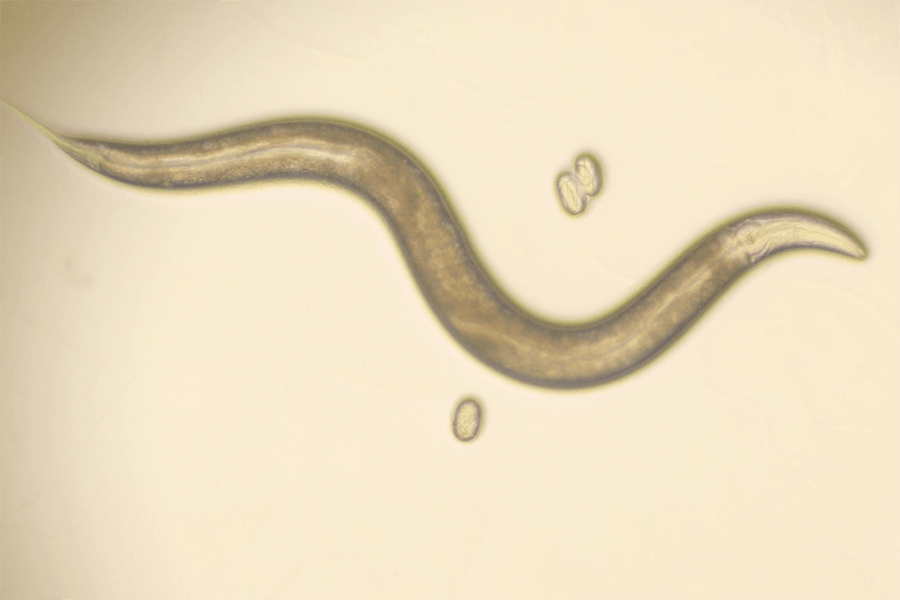A new study has found that a probiotic bacterium called Lacticaseibacillus rhamnosus HA-114 may help prevent neurodegeneration in C. elegans worms, which are used as an animal model to study Amyotrophic Lateral Sclerosis (ALS).
The team, led by Université de Montréal neuroscience professor Alex Parker and published in the journal Communications Biology, suggests that the disruption of lipid metabolism may contribute to cerebral degeneration and found that the neuroprotection provided by HA-114, a non-commercial probiotic, is unique compared to other strains of the same bacterial family tested.
“When we add it to the diet of our animal model, we notice that it suppresses the progression of motor neuron degeneration,” said Parker, the study’s lead author. “The particularity of HA-114 resides in its fatty acid content.”
Motor neurons, which are nerve cells that enable the transmission of signals to muscles so they can contract, allow us to move our bodies at will. People with ALS experience a gradual deterioration of these neurons, leading to muscle weakness and eventually paralysis, with an average life expectancy of only 3 to 5 years after diagnosis. Nearly 3,000 people in Canada have ALS.
“Recent research has shown that the disruption of the gut microbiota is likely involved in the onset and progression of many incurable neurodegenerative diseases, including ALS,” explained Parker. Identifying neuroprotective bacterial strains could form the basis for new therapies.
To study the neuroprotective effects of a probiotic-based dietary supplement on this animal model, the study’s first author, Audrey Labarre, a postdoctoral fellow, tested a total of 13 different bacterial strains and three strain combinations. HA-114 stood out as it helped reduce motor disorders in models with ALS and also Huntington’s disease, another neurodegenerative disease.
Relying on data from the genetic study, genomic profiling, behavioral analysis, and microscopy images, the scientific team identified two genes, acdh-1 and acs-20, which play a key role in this neuroprotective mechanism. These genes, which exist in equivalent forms in humans, are involved in lipid metabolism and beta-oxidation, a process through which fatty acids are broken down into energy in the mitochondria, the power plants of cells.
“We believe that fatty acids supplied by HA-114 enter the mitochondria through an independent, non-traditional pathway,” said Parker. “In doing so, they restore balance to impaired energy metabolism in ALS and lead to a decrease in neurodegeneration.”
The team is now conducting similar studies on mice and plans to validate in a clinical setting whether HA-114 could be a therapeutic complement to current ALS treatments. The advantage of probiotics, unlike drugs, is that they produce few side effects. To this end, a Canada-wide clinical study headquartered at the CRCHUM and led by ALS clinic director Dr. Geneviève Matte will be conducted with 100 subjects starting in the spring of 2023.
ALS Resources:
- The ALS Association: This organization provides information on what ALS is, how it is diagnosed and treated, and how to live with the disease. They also provide resources for caregivers and support for people living with ALS.
- The National Institute of Neurological Disorders and Stroke (NINDS): This organization, a part of the National Institutes of Health (NIH), provides information on the causes, symptoms, diagnosis, and treatment of ALS. They also fund research on the disease.
- Mayo Clinic: This medical center provides detailed information on ALS, including its causes, symptoms, diagnosis, and treatment options. They also provide resources for caregivers and support for people living with the disease.

